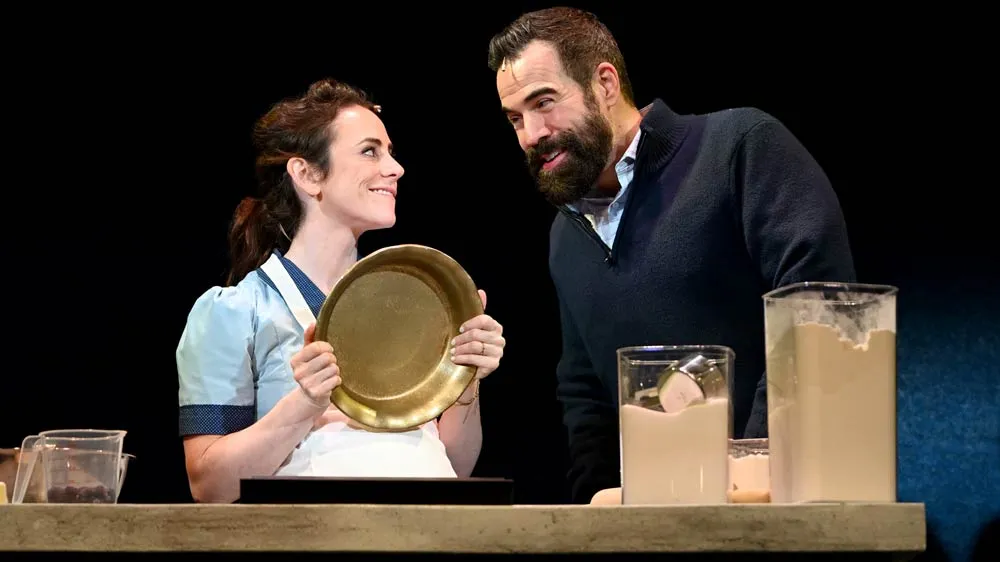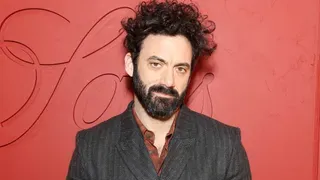July 12, 2008
Between Turkey & Germany
Michael Wood READ TIME: 3 MIN.
In the second part of a trilogy about love, birth and death, the German/Turkish writer/director Fatih Akin introduces us to several passionate characters compelled to choose between exile, jail or death. In Act I of "The Edge of Heaven", a bullying pensioner, Ali, strikes a hard bargain with a beleaguered prostitute, Yeter. Their deal culminates abruptly in tragedy, but not before Ali's college-professor son Nejat develops a profound bond with the woman and her struggle to educate her Turkish-born daughter, Ayten. Yeter's untimely death sends Nejat back to Turkey to help Ayten, who has had to flee Istanbul one step ahead of the police. Arriving penniless in Germany, Ayten jumps into bed with a nonconformist female student, Lotte, who helps her seek political asylum over the strenuous objections of her own conservative mother.
The Edge of Heaven has an all-star cast headed up by Baki Davrak - ravishingly seductive here as a conscience-stricken intellectual, and fondly recalled by many queer fans for his audacious debut as a gay Turkish Berliner in 1997's Lola and Bilidikid - and Fassbinder veteran Hanna Schygulla (The Marriage of Maria Braun). With the film and its outlaw lesbian couple, Akin has topped his art-house hit Head-On. Our phone chat, long-distance from Turkey, begins with my asking him for an explanation of his film's alluring English title, The Edge of Heaven.
Fatih Akin: It means the end of life, the opening of the door to the next life. It's a poetic description for death, for the end of life.
David Lamble: I think you handled the relationship between the two young women very well.
FA:In the first drafts, it was not a homosexual relationship. I always wanted to have a girl who was fighting against the system. I didn't like having this female character come to Europe and have this white guy, who feels guilty, try to help her. So I tried to change it and make it a male character who comes to Germany and meets this innocent girl, but I didn't like the idea of changing the sex of the character. Then I said, "Forget it, it's a relationship between two girls," but not putting focus on it. I wanted to break the clich?, that you had to put more weight on the love story, which I didn't want to do. Having two female characters completely made sense to me. If they're homosexuals or not I don't care: maybe they are, or maybe they're not.
Some female groups in Germany, homosexual groups, have extreme problems with why I used the homosexual relationship. They consider me a macho Turkish guy, which is a sort of covert racism. I was so happy when The Edge of Heaven won best film in Miami, for the gay and lesbian film festival. You can't believe how proud I was of that prize.
DL: I'm a big fan of Rainer Werner Fassbinder, and of Hanna Schygulla. How did you get her for the film?
FA: I was with Hanna at the Belgrade film festival, which organized a retrospective of her work. We immediately became friends, she clearly expressed her desire to work with me. For me, it was a great thing to hear from such an icon, such a diva, such a star of German, European or international cinema. I suddenly understood the challenge to write something for an old diva who has the best part of her career behind her.
DL: Faith, your films are wonderful. I hope you come to the United States, and I hope sometime you come to our Lesbian/Gay Film Festival [in San Francisco].
FA: I would love to do that.
Michael Wood is a contributor and Editorial Assistant for EDGE Publications.






